When you don’t understand why you feel or behave the way you do, what do you do? Do you talk to somebody about your feelings and ask them? Do you try a little research on the web? Or read a book? Have you ever considered asking your inner self?
Asking your inner self is sometimes described as fo cusing. Focusing is a gentle, powerful skill that allows you to tap into the body’s own wisdom in order to make positive changes to the ways in which you think and feel. This method of self-discovery is both empowering and enlightening.
cusing. Focusing is a gentle, powerful skill that allows you to tap into the body’s own wisdom in order to make positive changes to the ways in which you think and feel. This method of self-discovery is both empowering and enlightening.
By accessing your body’s stored knowledge you can very often find the rationale behind feelings and thoughts that make no sense on a conscious level. According to Ann Weiser Cornell (May, 2005) in her book: The Radical Acceptance of Everything. Calluna Press. p. 13:
Focusing is a psychotherapeutic process developed by psychotherapist Eugene Gendlin. It can be successfully used in any kind of therapeutic situation, including peer-to-peer sessions. It involves holding a kind of open, non-judging attention to an internal knowing which is directly experienced but is not yet in words. Focusing can, among other things, be used to become clear on what one feels or wants, to obtain new insights about one’s situation, and to stimulate change or healing of the situation. Focusing is set apart from other methods of inner awareness by three qualities: something called the “felt sense”, a quality of engaged accepting attention, and a researched-based technique that facilitates change
If you would like more information about Focusing then please do not hesitate to contact me using the contact page.

 over them – not fact. When we exercise power over our feelings we are choosing, to a much greater extent, how we feel. Our feelings are largely influenced by our thoughts and our thoughts are the result of our previous experiences, influences and beliefs in any situation. Therefore if you have learned to feel guilty if somebody around you is upset, you will most likely feel guilty. If your first reaction to perceived aggression is to retaliate in
over them – not fact. When we exercise power over our feelings we are choosing, to a much greater extent, how we feel. Our feelings are largely influenced by our thoughts and our thoughts are the result of our previous experiences, influences and beliefs in any situation. Therefore if you have learned to feel guilty if somebody around you is upset, you will most likely feel guilty. If your first reaction to perceived aggression is to retaliate in  envious, upset or offended, don’t react, pause for thought. Literally. Be
envious, upset or offended, don’t react, pause for thought. Literally. Be 

 g? Your bosses? Your clients? Your childrens? Husbands? Parents? … or Yours? Who is the only person who can ever really know exactly what it is that ensures your happiness, peace of mind, contentment? And who is the only person who should really be expected to put in the time and commitment to ensure that happiness, peace of mind and contentment?
g? Your bosses? Your clients? Your childrens? Husbands? Parents? … or Yours? Who is the only person who can ever really know exactly what it is that ensures your happiness, peace of mind, contentment? And who is the only person who should really be expected to put in the time and commitment to ensure that happiness, peace of mind and contentment?
 dy/mind. Right now your emotions may be a raging torrent of anger, frustration or desperation, or maybe a gentle loving stream of contentment, or even a pool of calm and peacefulness. Whatever type of emotion is present within you, it will affect your thinking, your behaviour and your perception of the current moment.
dy/mind. Right now your emotions may be a raging torrent of anger, frustration or desperation, or maybe a gentle loving stream of contentment, or even a pool of calm and peacefulness. Whatever type of emotion is present within you, it will affect your thinking, your behaviour and your perception of the current moment. 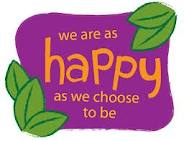 instead of frustration, and joy instead of anger, is to be more aware of our thoughts and to choose them wisely. If you don’t want to be unhappy, you can learn to challenge those unhappy thoughts, release them and change them for neutral or happy thoughts. If you no longer wish to feel stuck, then lift the lid to your thoughts and allow yourself to create the answers you need for change in your life. It may sound simple and that is because it is actually very straightforward.
instead of frustration, and joy instead of anger, is to be more aware of our thoughts and to choose them wisely. If you don’t want to be unhappy, you can learn to challenge those unhappy thoughts, release them and change them for neutral or happy thoughts. If you no longer wish to feel stuck, then lift the lid to your thoughts and allow yourself to create the answers you need for change in your life. It may sound simple and that is because it is actually very straightforward.  emotions and sticking to it. With a little determination, some support from people around you and maybe some professional guidance, you can decide to choose your thoughts and manage your emotions successfully.
emotions and sticking to it. With a little determination, some support from people around you and maybe some professional guidance, you can decide to choose your thoughts and manage your emotions successfully. ander around the shops in our local towns on a Saturday, passing increasing numbers of bakers, chip shops, burger bars, fast food shops, cafes, restaurants … the choice is seemingly limitless. We go home and sit in front of our television screen where we are shown advertisement after advertisement encouraging us to try this new food or that one. It is not surprising that we find ourselves giving in to temptation and eating something we hadn’t planned to, didn’t need to, and often didn’t really want to eat!
ander around the shops in our local towns on a Saturday, passing increasing numbers of bakers, chip shops, burger bars, fast food shops, cafes, restaurants … the choice is seemingly limitless. We go home and sit in front of our television screen where we are shown advertisement after advertisement encouraging us to try this new food or that one. It is not surprising that we find ourselves giving in to temptation and eating something we hadn’t planned to, didn’t need to, and often didn’t really want to eat! 
 ou are about to go in the bakers/chip shop or wherever, try this experiment in food awareness: Stop and ask yourself why you are going in. Are you genuinely hungry? Does your body need that sort of food? Could you be kinder to your body and give it something it really needs, rather than something you feel you want?
ou are about to go in the bakers/chip shop or wherever, try this experiment in food awareness: Stop and ask yourself why you are going in. Are you genuinely hungry? Does your body need that sort of food? Could you be kinder to your body and give it something it really needs, rather than something you feel you want? ps:
ps: ng heart disease, hypertension, diabetes, osteoporosis and a number of diet-related cancers such as: colon, breast, cervix, gall bladder, ovary, thyroid, kidney, prostate and esophagus. The added benefit of ensuring that you are eating a nutritional diet is that your body will function at its optimal best which means that you will naturally feel better too.
ng heart disease, hypertension, diabetes, osteoporosis and a number of diet-related cancers such as: colon, breast, cervix, gall bladder, ovary, thyroid, kidney, prostate and esophagus. The added benefit of ensuring that you are eating a nutritional diet is that your body will function at its optimal best which means that you will naturally feel better too. e hedge count. Research shows that exercise results in: up to a 35% lower risk of coronary heart disease and stroke; up to a 50% lower risk of type 2 diabetes; up to a 50% lower risk of colon cancer; up to a 20% lower risk of breast cancer; a 30% lower risk of early death and, a 30% lower risk of depression.
e hedge count. Research shows that exercise results in: up to a 35% lower risk of coronary heart disease and stroke; up to a 50% lower risk of type 2 diabetes; up to a 50% lower risk of colon cancer; up to a 20% lower risk of breast cancer; a 30% lower risk of early death and, a 30% lower risk of depression. This is the experience of “losing yourself in the moment” or, as sports players say, “being in the zone.” Pitch the task correctly by choosing something that is challenging but achievable and then lose yourself in it. Immersing yourself in this way allows you to “switch off” from all your everyday concerns and experience a greater enjoyment of life.
This is the experience of “losing yourself in the moment” or, as sports players say, “being in the zone.” Pitch the task correctly by choosing something that is challenging but achievable and then lose yourself in it. Immersing yourself in this way allows you to “switch off” from all your everyday concerns and experience a greater enjoyment of life. n we are more self aware we are naturally better able to make choices that are good for us deep down without being so affected by external influences. Self-awareness builds trust in our own judgement and facilitates a happier level of being.
n we are more self aware we are naturally better able to make choices that are good for us deep down without being so affected by external influences. Self-awareness builds trust in our own judgement and facilitates a happier level of being. ain—a change of more than 5% of body weight in a month.
ain—a change of more than 5% of body weight in a month. e or embarrassment associated with suffering from depression. Depression, like asthma or a broken leg, is a medical condition, and like any medical condition it responds much better to prompt diagnosis and treatment. If you suspect that either your or somebody you know may be suffering from low mood or depression, a visit to your doctor is always a good idea.
e or embarrassment associated with suffering from depression. Depression, like asthma or a broken leg, is a medical condition, and like any medical condition it responds much better to prompt diagnosis and treatment. If you suspect that either your or somebody you know may be suffering from low mood or depression, a visit to your doctor is always a good idea. 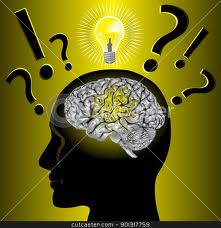
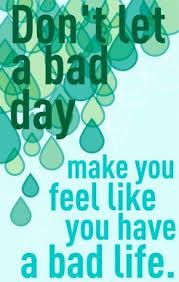

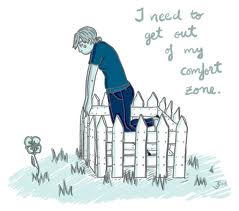 ave our own comfort zones, from that pair of comfy old slippers, to our hobbies, habits and routines and these are what makes our life our own. We choose our friends and our pastimes, we choose what and when we eat and we choose what to belief and think (yes we do). Choosing to change means taking ourselves outside our comfort zone, seeing things from a different perspective and learning new ways to think, feel and behave.
ave our own comfort zones, from that pair of comfy old slippers, to our hobbies, habits and routines and these are what makes our life our own. We choose our friends and our pastimes, we choose what and when we eat and we choose what to belief and think (yes we do). Choosing to change means taking ourselves outside our comfort zone, seeing things from a different perspective and learning new ways to think, feel and behave.
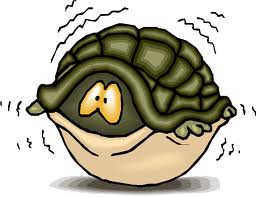 sought to avoid change and found it frightening, confusing and difficult to adjust to, then you will continue to react in that way unless you decide to do something about it. Change is such a difficult concept for so many of us that companies often run change management programmes to help their employees cope when they are undergoing change within their organisation.
sought to avoid change and found it frightening, confusing and difficult to adjust to, then you will continue to react in that way unless you decide to do something about it. Change is such a difficult concept for so many of us that companies often run change management programmes to help their employees cope when they are undergoing change within their organisation.